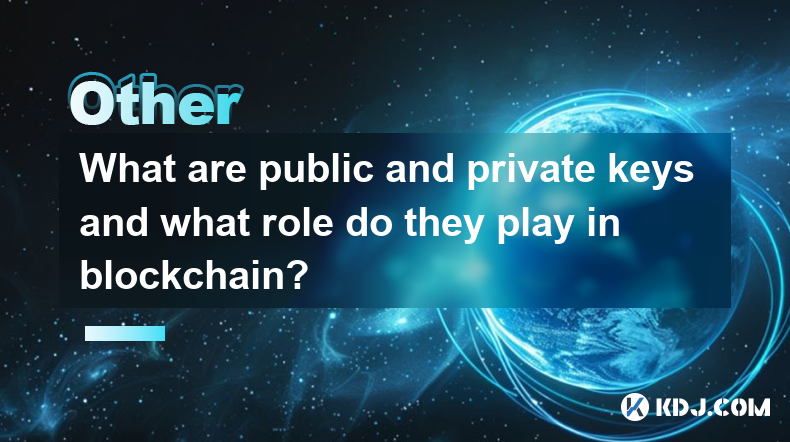-
 Bitcoin
Bitcoin $81,489.5635
-1.67% -
 Ethereum
Ethereum $1,695.4651
-5.18% -
 Tether USDt
Tether USDt $0.9995
-0.01% -
 XRP
XRP $2.0520
-3.51% -
 BNB
BNB $570.9477
-3.69% -
 USDC
USDC $0.9998
-0.01% -
 Solana
Solana $112.8204
-4.54% -
 Dogecoin
Dogecoin $0.1592
-5.32% -
 TRON
TRON $0.2383
0.43% -
 Cardano
Cardano $0.6186
-5.05% -
 UNUS SED LEO
UNUS SED LEO $8.9764
-1.16% -
 Toncoin
Toncoin $3.2746
-0.41% -
 Chainlink
Chainlink $11.9775
-5.49% -
 Stellar
Stellar $0.2502
-0.32% -
 Avalanche
Avalanche $16.9747
-5.28% -
 Shiba Inu
Shiba Inu $0.0...01172
-3.57% -
 Sui
Sui $2.0344
-8.21% -
 Hedera
Hedera $0.1516
-5.77% -
 Polkadot
Polkadot $3.8232
-2.49% -
 MANTRA
MANTRA $6.0922
-3.03% -
 Litecoin
Litecoin $76.7063
-6.65% -
 Bitcoin Cash
Bitcoin Cash $291.2979
-2.40% -
 Dai
Dai $0.9999
-0.02% -
 Ethena USDe
Ethena USDe $0.9986
-0.05% -
 Bitget Token
Bitget Token $4.2790
-3.53% -
 Pi
Pi $0.6120
-0.50% -
 Monero
Monero $203.4248
-5.68% -
 Hyperliquid
Hyperliquid $10.9016
-6.10% -
 Uniswap
Uniswap $5.4430
-6.01% -
 OKB
OKB $52.1906
1.63%
What are public and private keys and what role do they play in blockchain?
Blockchain security relies on the mathematical link between public and private keys; the public key receives funds, while the private key, kept secret, authorizes transactions—losing it means losing access to your cryptocurrency.
Feb 28, 2025 at 01:36 pm

What are Public and Private Keys and What Role Do They Play in Blockchain?
Key Points:
- Public Keys: These are like your publicly available email address. They are used to receive cryptocurrency and verify transactions. Anyone can see your public key, and it's essential for others to send you funds. They are derived mathematically from your private key but cannot be used to deduce the private key.
- Private Keys: These are like your email password. They are the secret key that grants you access and control over your cryptocurrency. Keeping your private key secure is paramount because anyone with access to it can spend your cryptocurrency. Losing your private key is equivalent to losing access to your funds – there's no recovery mechanism in most cases.
- Relationship between Public and Private Keys: The core of blockchain security lies in the cryptographic relationship between these two keys. They are mathematically linked, ensuring that only the holder of the private key can authorize transactions associated with the corresponding public key. This asymmetric cryptography is fundamental to the security and integrity of blockchain transactions.
- Key Generation and Management: Understanding how these keys are generated and the importance of secure key management practices are crucial for anyone interacting with blockchain technology. This involves using robust wallets, practicing strong password hygiene, and understanding the risks associated with different key storage methods.
- Use in Blockchain Transactions: Every transaction on a blockchain requires the use of both public and private keys. The private key is used to sign transactions, proving ownership and authorization. The public key is used to verify the signature and confirm that the transaction originated from the legitimate owner.
- Public Keys: The Address of Your Crypto Wallet
- A public key is a cryptographic key that is made available publicly. It acts as your digital address on the blockchain. Think of it like your email address – you give it out to people so they can send you emails. Similarly, you share your public key with others so they can send you cryptocurrency. However, unlike an email address, a public key is much longer and usually represented as a complex alphanumeric string. This string is generated through sophisticated mathematical algorithms applied to the private key.
- The primary function of a public key is to receive cryptocurrency. When someone sends you funds, they use your public key to verify that the transaction is indeed destined for your wallet. The blockchain network uses this key to associate the transaction with your specific digital wallet. The public key is essentially a one-way function; it's computationally infeasible to derive the private key from it. This characteristic is critical to the security of blockchain technology.
- This cryptographic one-way street ensures that even if someone obtains your public key (which is often publicly visible on the blockchain), they cannot access your funds. They lack the essential component – the private key – required to authorize transactions. The public key's role is purely to receive and verify transactions; it has no authority to spend or manipulate the associated funds. This aspect underpins the security and trust mechanisms at the heart of blockchain technology. The design ensures that ownership and control remain solely with the holder of the private key. Public keys are often encoded into various formats, like addresses displayed in cryptocurrency wallets, ensuring user-friendliness while maintaining the underlying cryptographic strength. These addresses are essentially human-readable representations of the public key.
- Private Keys: The Key to Your Crypto Fortune
- A private key is a secret cryptographic key that grants you exclusive control over your cryptocurrency. It's akin to your password for accessing your online banking account or the combination to your safe. Unlike the public key, this key must be kept absolutely confidential. Its exposure would immediately compromise the security of your cryptocurrency holdings, granting an unauthorized party complete access to your funds. The private key is generated through complex cryptographic processes and is inextricably linked to its corresponding public key.
- The private key is the essential component used to authorize transactions. When you want to send cryptocurrency, your wallet software uses your private key to create a digital signature for the transaction. This signature is a cryptographic proof that you are the legitimate owner of the funds and have authorized the transfer. The blockchain network verifies this signature using your corresponding public key, confirming the authenticity and validity of the transaction. The security and integrity of the entire process depend heavily on the secrecy of the private key. Compromising this key is tantamount to losing all your cryptocurrency.
- The methods for generating and managing private keys are crucial aspects of blockchain security. Different wallets utilize various techniques, ranging from deterministic key generation to hierarchical deterministic (HD) wallets. These approaches aim to enhance security and facilitate backup and recovery mechanisms. However, even with these advanced techniques, the fundamental principle remains – the absolute confidentiality of the private key is paramount. Losing or compromising your private key results in irreversible loss of access to your cryptocurrency; there's no centralized authority or support system to retrieve it. This highlights the importance of employing robust security practices, including secure storage methods, strong passwords, and avoidance of phishing scams.
- The Interplay Between Public and Private Keys: The Heart of Blockchain Security
- The relationship between public and private keys forms the cornerstone of blockchain security. These keys are mathematically intertwined, but the link is unidirectional – it's computationally infeasible to derive the private key from the public key. This asymmetric cryptography ensures that only the holder of the private key can authorize transactions associated with the corresponding public key. This fundamental principle prevents unauthorized access and spending of cryptocurrency.
- The process of sending cryptocurrency illustrates this interplay perfectly. When you initiate a transaction, your wallet software uses your private key to generate a digital signature that cryptographically binds the transaction to your ownership. This signature is then broadcast to the blockchain network. Nodes on the network verify the signature by using your public key. If the signature is valid (meaning it was created using the private key corresponding to the public key associated with the receiving address), the transaction is deemed legitimate and added to the blockchain. This verification process is decentralized, ensuring transparency and security. No single entity controls the validation process, mitigating the risk of manipulation or fraud.
- The inherent security of this system stems from the computational complexity of reversing the cryptographic process. Breaking the link between the public and private key requires immense computational power, far beyond current technological capabilities. This makes the system highly resistant to attacks aimed at stealing cryptocurrency. The mathematical underpinnings of this cryptographic system are rigorously tested and widely accepted within the cryptographic community, ensuring its reliability and robustness. This interaction between public and private keys creates a secure and transparent system that underpins the entire blockchain ecosystem.
- Key Generation and Management: Safeguarding Your Crypto Assets
- Generating and managing your cryptographic keys securely is paramount to safeguarding your cryptocurrency. The methods used for key generation and management vary depending on the type of wallet used, but the core principles remain consistent: the utmost confidentiality of the private key. Many wallets employ deterministic key generation, meaning they derive multiple keys from a single seed phrase (a mnemonic phrase). This approach simplifies backup and recovery while maintaining security. Hierarchical deterministic (HD) wallets take this a step further, generating a hierarchy of keys from a single seed, offering increased security and efficiency for managing multiple accounts.
- Secure storage of your private keys is equally crucial. Hardware wallets offer the highest level of security, storing your keys offline on a dedicated device. Software wallets, while convenient, require careful consideration of security best practices, including strong passwords, two-factor authentication (2FA), and regular software updates. Never share your private keys with anyone, and be wary of phishing scams that attempt to trick you into revealing your keys. Regularly backing up your keys is essential to prevent data loss, but ensure that backups are stored securely and offline. The choice of wallet and key management strategy depends on individual needs and risk tolerance, but prioritizing security should always be paramount. Understanding the risks associated with different storage methods and implementing appropriate safeguards is crucial for protecting your cryptocurrency investments.
- Public and Private Keys in Blockchain Transactions: The Mechanics of Transfer
- Every transaction on a blockchain leverages both public and private keys to ensure security and verify ownership. When you send cryptocurrency, the process begins with the generation of a transaction request. This request includes details like the sender's address (derived from their public key), the recipient's address (their public key), the amount of cryptocurrency being transferred, and a transaction fee. The crucial step is the signing of this transaction request using your private key. This signing process generates a digital signature, a cryptographic hash that uniquely identifies the transaction and proves its authenticity.
- This digital signature is not just a simple confirmation; it's a cryptographic proof that you, and only you, authorized the transaction. The signature is inextricably linked to the transaction data and your private key. The blockchain network verifies this signature using your public key. The network nodes check if the signature is valid and corresponds to the sender's public key. If the signature is valid, the transaction is considered legitimate and added to the blockchain. This process ensures that only the legitimate owner, possessing the corresponding private key, can authorize the transfer of cryptocurrency. The entire transaction is transparent and auditable, as the blockchain records every detail of the transaction, including the digital signature.
- The security of this system is rooted in the cryptographic principles underlying digital signatures. Forging a valid signature without possessing the private key is computationally infeasible, making the system highly resistant to fraud. The decentralized nature of the blockchain network further enhances security, as no single entity controls the validation process. This distributed consensus mechanism ensures that fraudulent transactions are quickly detected and rejected by the network. The combined use of public and private keys, digital signatures, and decentralized validation forms a robust system for secure cryptocurrency transactions.
FAQs:
Q: What happens if I lose my private key?
A: Losing your private key means irreversible loss of access to your cryptocurrency. There is generally no recovery mechanism, as the key is essential for authorizing transactions. No centralized authority or support system can retrieve it.
Q: Can my public key be used to steal my cryptocurrency?
A: No. Your public key is designed to receive cryptocurrency, not spend it. It cannot be used to deduce your private key, making it impossible to steal your funds. It's analogous to sharing your email address; it doesn't grant access to your inbox.
Q: How are public and private keys generated?
A: Keys are generated using sophisticated cryptographic algorithms. The exact method varies depending on the wallet and software used, but the core principle is to create a pair of mathematically linked keys with a strong one-way relationship (public key cannot be used to easily derive the private key).
Q: What are the best practices for securing my private keys?
A: Best practices include using a hardware wallet for maximum security, employing strong and unique passwords, enabling two-factor authentication (2FA), regularly backing up your keys offline, and being wary of phishing scams. Never share your private key with anyone.
Q: What is the difference between a public key and a cryptocurrency address?
A: A cryptocurrency address is a human-readable representation of your public key. It's a shortened, user-friendly version of the longer, more complex public key string. Both serve the same purpose: to receive cryptocurrency.
Q: Are public and private keys specific to a particular cryptocurrency?
A: While the underlying cryptographic principles are similar, the specific format and implementation of public and private keys might differ slightly depending on the cryptocurrency's underlying blockchain technology. However, the fundamental roles remain consistent across various cryptocurrencies.
Q: Can I create my own public and private keys?
A: While technically possible using cryptographic libraries, it is strongly discouraged unless you have extensive expertise in cryptography and security. Using established wallets is far safer and more convenient. Incorrectly generated keys can compromise security.
This article provides a comprehensive explanation of public and private keys and their role in blockchain technology, focusing on the security implications and practical applications within the cryptocurrency space. Remember, maintaining the confidentiality of your private keys is absolutely critical for securing your cryptocurrency holdings.
Disclaimer:info@kdj.com
The information provided is not trading advice. kdj.com does not assume any responsibility for any investments made based on the information provided in this article. Cryptocurrencies are highly volatile and it is highly recommended that you invest with caution after thorough research!
If you believe that the content used on this website infringes your copyright, please contact us immediately (info@kdj.com) and we will delete it promptly.
- Ethereum's Price Has Fallen Below Significant Support Levels
- 2025-04-07 02:20:12
- Investors Evaluating Dogecoin Must Acknowledge the Risks
- 2025-04-07 02:20:12
- Elon Musk Denies U.S. Government Is Adopting Dogecoin Cryptocurrency Through His Efforts
- 2025-04-07 02:15:12
- Silvio Vieria Joins Access Protocol, Ushering in a New Era of Advanced On-Chain Art
- 2025-04-07 02:15:12
- You Need to Own At Least 1,000 XRP to Get Rich – Here’s Why!
- 2025-04-07 02:10:12
- Investor litigation around cryptocurrency won't disappear just because the US Securities and Exchange Commission has been dropping Biden administration enforcement actions.
- 2025-04-07 02:10:12
Related knowledge

Is the ranking of Chinese blockchain apps real and reliable?
Apr 04,2025 at 09:01pm
The ranking of Chinese blockchain apps has become a topic of interest for many in the cryptocurrency community, as it provides insights into the popularity and adoption of blockchain technology within China. However, the reliability and authenticity of these rankings are often questioned. This article aims to delve into the factors that influence these ...

What are the future development trends of blockchain game development?
Apr 03,2025 at 05:00am
Blockchain technology has revolutionized various industries, and gaming is no exception. As we look to the future, several trends are set to shape the development of blockchain games. These trends not only promise to enhance the gaming experience but also to integrate blockchain technology more seamlessly into the gaming ecosystem. Let's explore these t...

What are the high-return opportunities for blockchain investments?
Apr 05,2025 at 02:35pm
Blockchain technology has revolutionized the financial world, offering numerous high-return investment opportunities. These opportunities span various sectors within the cryptocurrency ecosystem, including cryptocurrencies, decentralized finance (DeFi), non-fungible tokens (NFTs), and blockchain startups. Each of these areas presents unique risks and re...

What are the maintenance costs of blockchain system development?
Apr 03,2025 at 06:07pm
The maintenance costs of blockchain system development are multifaceted and depend on various factors. These costs can include technical maintenance, security updates, infrastructure expenses, and personnel costs. Understanding these elements is crucial for anyone planning to develop or maintain a blockchain system. Technical MaintenanceTechnical mainte...

What are the money-making models of blockchain games?
Apr 04,2025 at 02:00pm
Blockchain games have emerged as a revolutionary way for players to earn real money while enjoying their favorite pastime. These games leverage the power of blockchain technology to create unique money-making models that benefit both the players and the developers. In this article, we will explore the various money-making models of blockchain games and ...

What are the money-making opportunities in the application of blockchain in the field of Internet of Things?
Apr 05,2025 at 10:35pm
The integration of blockchain technology with the Internet of Things (IoT) presents numerous money-making opportunities. Blockchain, with its decentralized and secure nature, can revolutionize how IoT devices interact, manage data, and conduct transactions. This article will explore various avenues where entrepreneurs, developers, and investors can capi...

Is the ranking of Chinese blockchain apps real and reliable?
Apr 04,2025 at 09:01pm
The ranking of Chinese blockchain apps has become a topic of interest for many in the cryptocurrency community, as it provides insights into the popularity and adoption of blockchain technology within China. However, the reliability and authenticity of these rankings are often questioned. This article aims to delve into the factors that influence these ...

What are the future development trends of blockchain game development?
Apr 03,2025 at 05:00am
Blockchain technology has revolutionized various industries, and gaming is no exception. As we look to the future, several trends are set to shape the development of blockchain games. These trends not only promise to enhance the gaming experience but also to integrate blockchain technology more seamlessly into the gaming ecosystem. Let's explore these t...

What are the high-return opportunities for blockchain investments?
Apr 05,2025 at 02:35pm
Blockchain technology has revolutionized the financial world, offering numerous high-return investment opportunities. These opportunities span various sectors within the cryptocurrency ecosystem, including cryptocurrencies, decentralized finance (DeFi), non-fungible tokens (NFTs), and blockchain startups. Each of these areas presents unique risks and re...

What are the maintenance costs of blockchain system development?
Apr 03,2025 at 06:07pm
The maintenance costs of blockchain system development are multifaceted and depend on various factors. These costs can include technical maintenance, security updates, infrastructure expenses, and personnel costs. Understanding these elements is crucial for anyone planning to develop or maintain a blockchain system. Technical MaintenanceTechnical mainte...

What are the money-making models of blockchain games?
Apr 04,2025 at 02:00pm
Blockchain games have emerged as a revolutionary way for players to earn real money while enjoying their favorite pastime. These games leverage the power of blockchain technology to create unique money-making models that benefit both the players and the developers. In this article, we will explore the various money-making models of blockchain games and ...

What are the money-making opportunities in the application of blockchain in the field of Internet of Things?
Apr 05,2025 at 10:35pm
The integration of blockchain technology with the Internet of Things (IoT) presents numerous money-making opportunities. Blockchain, with its decentralized and secure nature, can revolutionize how IoT devices interact, manage data, and conduct transactions. This article will explore various avenues where entrepreneurs, developers, and investors can capi...
See all articles





















































































